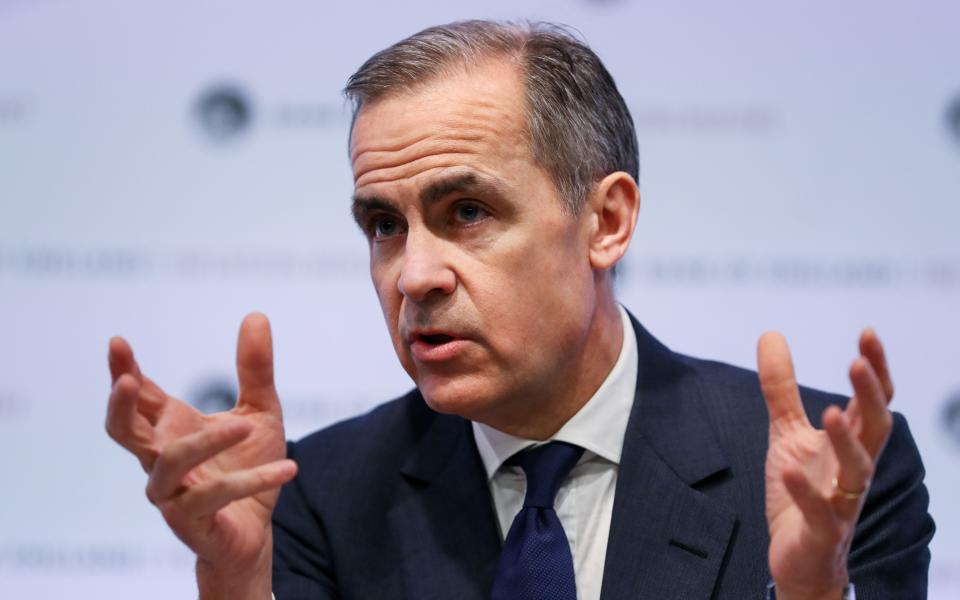Bank of England warns on mortgage risk as interest rates rise

Banks have been warned that British homeowners' giant mortgages may be affordable now, but could get them into trouble as interest rates rise.
The Bank of England is keeping a close eye on lenders' attitudes to risk, as more mortgages than ever before are being given at a value of more than four times the borrower's income.
Officials have put a limit on the proportion of loans banks can give at above 4.5-times income. But increasing numbers of mortgages are being offered at just below that cap.
Almost 30pc of new mortgages are now given with a loan-to-income ratio of more than 4pc - a record high, in part driven by the need for larger loans to purchase increasingly expensive properties.

Mark Carney and his colleagues on the Financial Policy Committee are not stepping in with a further crackdown yet, but told banks action could be taken if current trends continue.
The FPC warned of "some signs of rising domestic risk appetite" in the mortgage and corporate loan markets.
Mortgage borrowers have to prove to lenders that they can afford their repayments even if interest rates jump by three percentage points. Now interest rates are going up, that threshold rises. But it will not affect the loans already given out when rates were lower.
One potential action the Bank could take against the 'bunching' of loans at below 4.5-times income, if the risk continues to grow, could be to make banks hold more capital by raising the counter-cyclical buffer - a measure designed to make banks put resources aside when risk appetite is rising, and reduce it in tougher times.

Corporate debt markets are also a worry.
The Bank has seen a recent surge in leveraged loans - those going to heavily indebted firms - and bond issuance by riskier companies, with credit ratings of triple-B or below.
In the UK this could leave banks exposed to more losses in a downturn, building up risks now that could harm the financial system and the wider economy later.
There are risks globally too. US businesses are more indebted now than at any non-recessionary period since the dotcom bubble.
On top of that, banks and creditors seem happy to take bigger risks at relatively low rates of interest.
Typically lenders demand a higher return on these risky loans once the base rate has started rising.
But despite a series of hikes from the US Federal Reserve and one from the Bank of England, this has not yet happened, causing the authorities to fear an increase in lenders’ willingness to take risks.

The Bank of England cannot act directly to limit risks in the US markets, or in bond markets when UK banks do not hold those bonds.
It could, however, take note of these risks when calculating the potential losses banks would face in a hypothetical future recession, which is done in the annual stress tests imposed on lenders.
This could result in banks being told to hold more capital against these exposures.

 Yahoo Finance
Yahoo Finance 